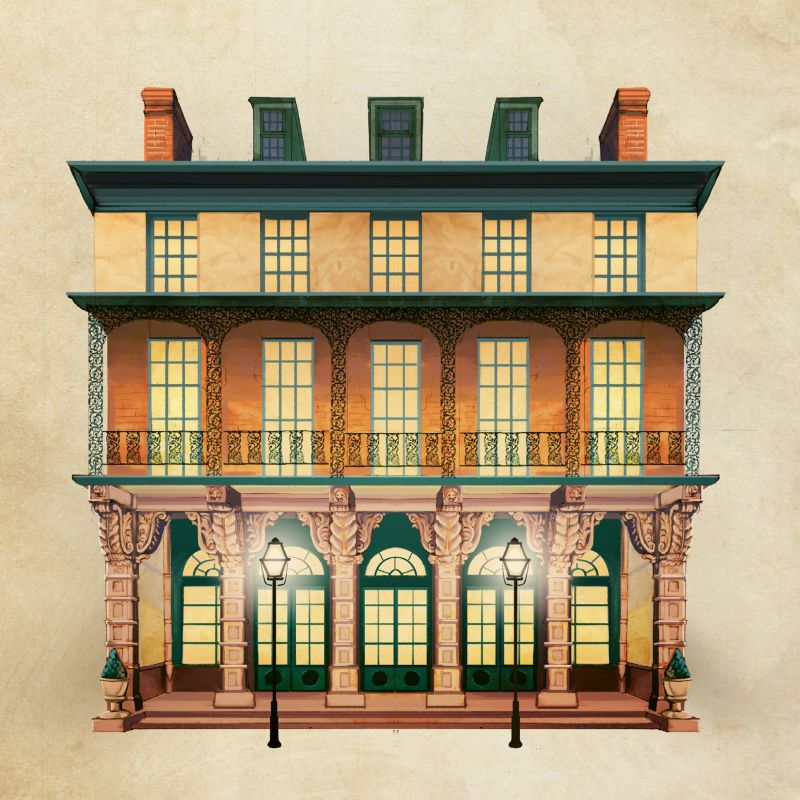
First & Foremost
On February 12, 1736, the Dock Street Theatre opened with a performance of bawdy comedy The Recruiting Officer. The same year, Flora debuted, becoming the first opera staged in America. Prior to this time, plays and concerts were presented in the assembly rooms of inns and taverns known as “long rooms.”
Place with a Punch
In 1809, the popular Planter’s Hotel opened on the site. Among the notables who visited was famed actor Junius Brutus Booth (father of Edwin and John Wilkes Booth). Robert Smalls, who would later become a Civil War hero for turning the steamer Planter over to the Union Navy, worked as a waiter in the dining room, no doubt serving Charleston’s famed Planter’s Punch, which was introduced at the hotel.
Fabulous Front
In 1835, the Church Street façade was improved with the addition of an intricate cast-iron balcony in a morning- glory pattern en vogue during the early 19th century. The Planter’s Hotel also added a line of imposing sandstone columns topped with carved mahogany capitals and cornices.
To the Rescue
After the Civil War, the building fell into disrepair. It was slated for demolition in 1935, but thanks to the attention of city leaders including Mayor Burnet Maybank, it instead became one of the first historic local structures to undergo renovation. Using Works Progress Administration monies, it was rebuilt as a theater that Charleston architects Albert Simons and Douglas Ellington modeled after 18th-century London playhouses.
Three Times & Charm
The theater celebrated a third opening on March 18, 2010, after a three-year, $19-million renovation by the City of Charleston that melded the building’s history with state-of-the-art lighting and sound, as well as new seating, sound-proofing, heating, and air-conditioning.
Elegant Appointments
During the 1935 renovation, new walls were built from local black cypress rubbed mellow with an ancient formula consisting of iron nails dissolved in vinegar, then waxed to bring out the rich grain. A commodious orchestra pit was added to the traditional 18th-century apron stage. Many original materials were saved, but when that wasn’t possible, exact copies were made. The stairs on the right and left of the balcony and drawing room, for example, were cast from molds of the originals.
Twice & Nice
The theater’s second grand opening took place on November 26, 1937, with a revival of The Recruiting Officer presented by Charleston’s Footlight Players, directed by Emmett Robinson. Dock Street would remain the home of the Footlight Players until 1986, when they moved to their present facility at 20 Queen Street.